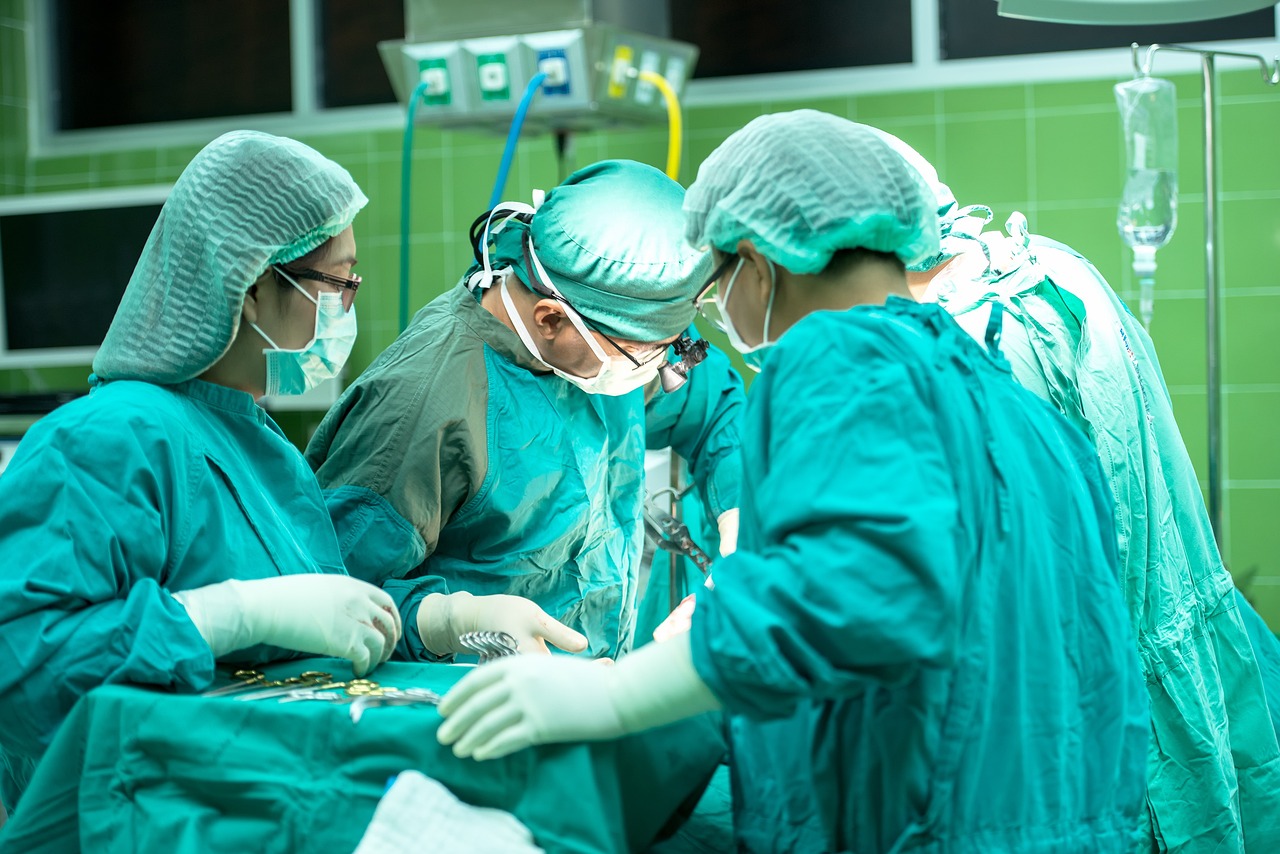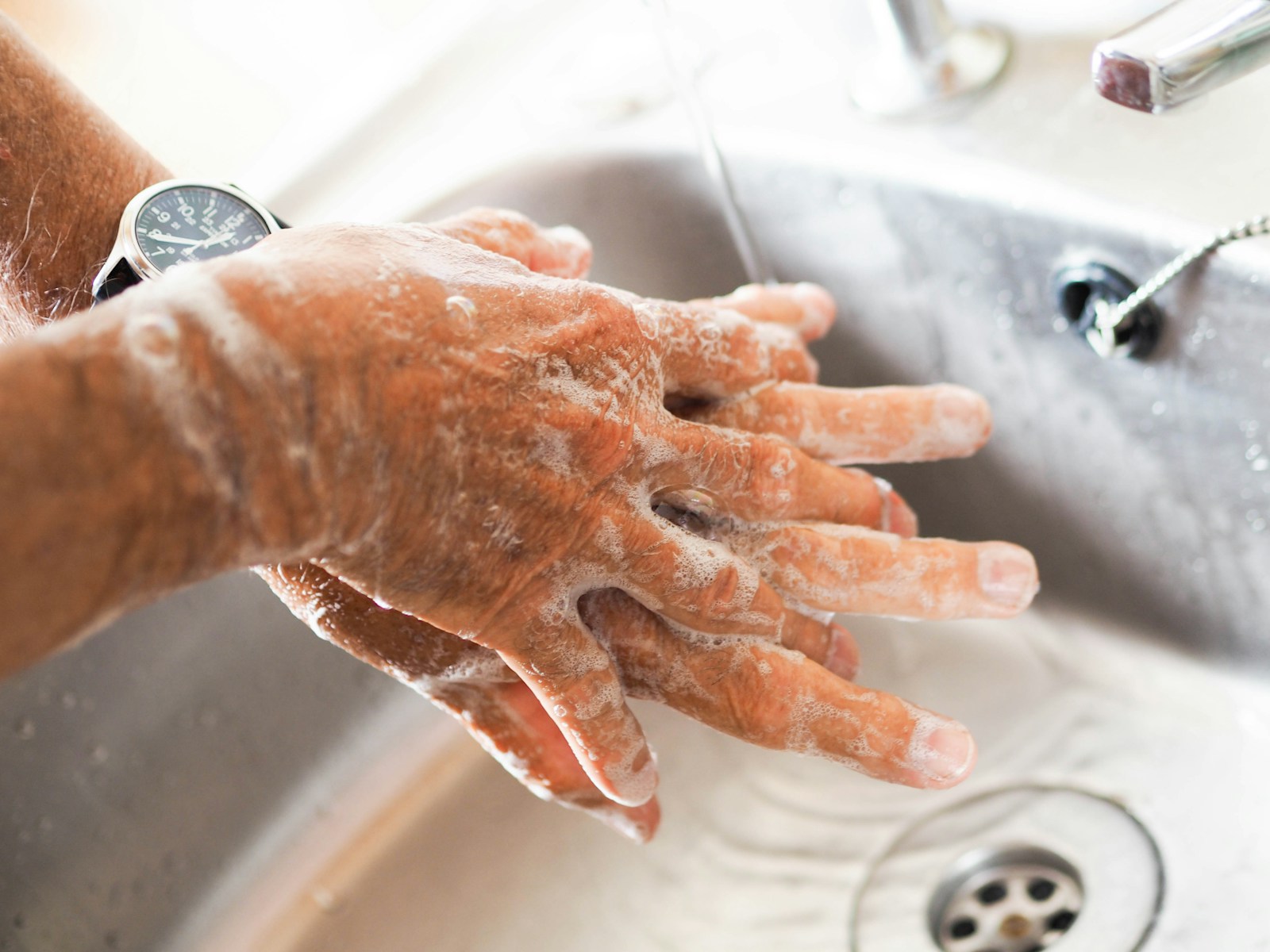After lumbar spinal fusion surgery, crucial for preventing infections include strict wound care, stringent hygiene, and timely use of prescribed antibiotics. Keep an eye out for early infection signs like escalating pain, fever, or alterations in discharge. Maintaining a well-rounded diet, particularly abundant in protein, aids in wound healing and infection resistance. Regular post-operative check-ups guarantee effective recovery monitoring. Optimizing hydration aids medication efficiency and supports overall recovery. While these tips lay the foundation of infection prevention, further exploration into each aspect can yield more detailed strategies to guarantee a smooth, all-encompassing recovery after surgery.
Understanding Lumbar Spinal Fusion
What exactly is lumbar spinal fusion, one might ask? Lumbar spinal fusion is a surgical procedure performed to eliminate painful motion in the spine by fusing two or more vertebrae together. This is achieved through several fusion methodologies, each with their own significant approach, yet sharing the common goal of spinal stability.
The most common methodologies involve the use of bone grafts, metal screws, and rods. The bone grafts, typically taken from the patient’s own hip or from a bone bank, encourage the growth of new bone. The screws and rods hold the vertebrae in place until the fusion is complete, typically over several months.
A key aspect to take into account post-surgery is mobility. Post operative mobility can be initially limited, but with careful management and adherence to the surgeon’s advice, most patients regain normal or near-normal mobility. Physical therapy often plays a vital role in this process, aiding patients in regaining strength and flexibility.
Understanding the process and potential outcomes of lumbar spinal fusion can help patients approach the surgery with realistic expectations, ultimately contributing towards a successful recovery. This understanding also serves as a foundation for preventing potential complications, such as infections, which will be discussed later in this article.
Importance of Pre-Surgery Preparation
The prevention of infections after lumbar spinal fusion surgery begins well before the procedure itself, with appropriate pre-surgery preparation. This includes an emphasis on personal hygiene practices to minimize the risk of introducing bacteria into the surgical site. Additionally, patients should be fully aware of the surgical risks and the steps they can take to mitigate them.
Pre-Surgery Hygiene Practices
Adopting rigorous pre-surgery hygiene practices greatly enhances the chances of a successful lumbar spinal fusion surgery and minimizes the likelihood of post-operative infections. The importance of personal grooming cannot be overstated in this situation. Regular bathing, keeping nails trimmed and clean, and maintaining oral hygiene can reduce the risk of carrying infection-causing bacteria into the hospital environment. Further, home sterilization techniques – such as frequently washing hands with antibacterial soap, cleaning surfaces with disinfectant, and laundering clothes, bed linen, and towels on a hot wash – also play a pivotal role in minimizing bacterial presence. By adhering to these measures, patients can significantly contribute to preventing infections after their surgery.
Understanding Surgical Risks
Understanding the inherent risks associated with lumbar spinal fusion surgery is an essential part of pre-surgery preparation, enabling patients to make informed decisions and take necessary precautions. These risks can be broadly categorized into two main areas:
- Surgical Complications: These can range from minor issues such as wound healing problems to more serious complications like spinal cord injury or infection. It’s important to follow the surgeon’s instructions to minimize these risks.
- Anesthesia Risks: Anesthesia, while generally safe, can sometimes lead to complications like allergic reactions or respiratory problems.
- Postoperative Risks: These include pain, blood clots, and slower recovery time.
Being familiar with these potential risks helps patients better prepare for their surgery and take proactive steps to reduce the likelihood of complications.
Antibiotics: Your Infection Shield
Antibiotics serve as an indispensable shield in warding off potential infections after lumbar spinal fusion surgery. Their effectiveness, however, is greatly dependent on correct usage with regards to timing, dosage, and type. Let’s explore the importance of antibiotics in this scenario and the key considerations for their appropriate use.
Importance of Antibiotics
In the domain of postoperative care following lumbar spinal fusion surgery, the strategic use of antibiotics represents a critical line of defense in preventing potential infections. However, their use comes with certain considerations:
- Antibiotic Resistance Risks: Overuse or misuse of antibiotics can lead to resistance, wherein bacteria evolve and render the drugs ineffective.
- Allergic Reactions to Antibiotics: Not everyone can safely use all types of antibiotics. It’s paramount to contemplate potential allergic reactions.
- Drug Interactions: Antibiotics may interact with other medications, affecting their efficacy or causing adverse side effects.
These factors underscore the importance of judicious antibiotic use, careful patient monitoring, and accurate reporting of patient history and current medications.
Correct Antibiotic Usage
To effectively shield against postoperative infections, it is important to administer antibiotics in a judicious and controlled manner. Correct antibiotic usage is critical in reducing the risk of antibiotic resistance, which can make infections more difficult to treat in the future.
Certain antibiotics can have drug interactions, altering how other medications work or increasing the risk for serious side effects. Hence, it is important to inform your healthcare provider about all the drugs you are currently taking. It’s also crucial to follow the prescribed dosage and duration to avoid antibiotic resistance. Remember, antibiotics are your shield against infections after lumbar spinal fusion surgery, so it’s vital to use them correctly for optimal recovery.
Cleanliness: Your First Line of Defense
Maintaining rigorous hygiene standards is crucial in preventing post-operative infections following a lumbar spinal fusion surgery. Infection sources can be numerous, but often, they are associated with a lack of cleanliness. Hand hygiene, for instance, is a critical factor in limiting the spread of infectious bacteria.
- Hand Hygiene: Make sure your hands are clean before and after touching your surgical area. Use soap and warm water, scrubbing for at least 20 seconds. Hand sanitizers with at least 60% alcohol can be used when soap is not available.
- Clean Environment: Guarantee your surroundings are clean. Regularly sanitize common touch surfaces like doorknobs, mobile phones, and remote controls to eliminate potential infection sources.
- Personal Hygiene: Take regular showers with mild soap and dry yourself thoroughly. Avoid soaking in baths or pools as this may increase infection risk.
Proper Wound Care Post-Surgery
Beyond maintaining overall cleanliness, paying special attention to the care of your surgical wound plays a significant role in preventing infections after lumbar spinal fusion surgery.
Proper wound care begins with understanding and applying effective Wound Dressing Techniques. It’s essential to keep your dressing clean and dry. Typically, you’ll have to change the dressing every day for the first week post-surgery, unless your doctor recommends otherwise. When changing, handle the dressing with clean hands, and use sterile gloves if possible. Avoid touching the wound directly, and if the dressing is stuck, moisten it lightly with sterile saline before removal to prevent injury to the healing tissue.
Infection Control Measures are equally important. To start with, do not apply creams, lotions or powders to the wound unless explicitly prescribed by your doctor. Make sure the wound is not exposed to potentially contaminated water, like in swimming pools or hot tubs. Also, protect the wound from direct sunlight.
The goal of these measures is to promote wound healing while minimizing the risk of infection. Remember, the best defense against post-surgical infections is proactive care. Always follow your healthcare provider’s specific instructions for wound care.
Recognizing Early Infection Signs
Closely monitoring your recovery for early signs of infection is an essential step in post-surgical care following a lumbar spinal fusion procedure. Identifying infection indicators at the onset can greatly reduce potential complications, ensuring a smoother recovery.
To help with this, you need to be aware of the following main signs:
- Increased pain or swelling around the surgical area: While some discomfort is expected, a sudden surge in pain or swelling might indicate an infection.
- The importance of fever: A persistent fever over 100.4 degrees Fahrenheit is a warning sign that your body may be fighting an infection.
- Pus or unusual discharge from the wound: If you notice any pus or foul-smelling discharge from the surgical site, it is vital to contact your healthcare provider promptly.
The Role of Healthy Nutrition
The importance of maintaining a balanced diet post-surgery cannot be overstated as it plays a critical role in preventing infections after lumbar spinal fusion surgery. Consuming protein-rich foods is particularly vital as it aids in the healing and repair of tissues damaged during surgery. Likewise, proper hydration is essential to recovery, as it supports overall body function and helps flush out toxins.
Balanced Diet Post-Surgery
Maintaining a well-rounded diet enriched with essential nutrients plays a pivotal role in accelerating recovery and preventing infections after lumbar spinal fusion surgery. It’s important to take into account dietary allergies and provide vegan options while planning a balanced post-surgery diet.
Here are three key considerations to keep in memory while planning a balanced diet:
- Dietary Allergies: Be mindful of any food allergies and steer clear of them to prevent inflammation, which could delay healing.
- Vegan Options: If you follow a vegan diet, make sure you are receiving enough nutrients from plant-based sources.
- Balanced Nutrition: Emphasize a variety of foods to guarantee a balance of vitamins, minerals, and antioxidants, which are essential for wound healing and immune function.
In the following section, we will discuss the importance of protein-rich foods.
Protein-rich Foods Importance
Regular consumption of protein-rich foods is essential to post-operative recovery, as it aids in tissue repair and strengthens the immune system. The importance of protein in your diet cannot be emphasized enough, particularly after a lumbar spinal fusion surgery. Protein sources such as lean meats, eggs, dairy, and legumes are critical for muscle recovery and wound healing. They provide the necessary building blocks for tissue regeneration, thereby assisting in a quicker recovery period. In addition, proteins are crucial in maintaining a healthy immune system, helping the body fight off potential infections. Ensuring an adequate intake of protein post-surgery is, as such, a key component in your recovery plan. This dietary approach, along with other medical interventions, can greatly reduce the risk of post-operative infections.
Hydration and Recovery
In the context of post-operative care following lumbar spinal fusion surgery, adequate hydration plays a pivotal role in promoting a speedy and efficient recovery. Maintaining a balanced fluid intake can not only prevent dehydration dangers but also aid in overall health improvement.
- Fluid Intake: Regularly consuming clear liquids, such as water and electrolyte-infused drinks, is essential for replenishing lost fluids and alleviating constipation, a common post-surgery issue.
- Identifying Dehydration Dangers: Early signs may include persistent thirst, dry mouth, fatigue, and decreased urine output. Immediate medical attention is warranted to prevent complications.
- Hydration and Nutrition: A well-hydrated body effectively absorbs nutrients and medications, enhancing the recovery process. As such, a combination of healthy nutrition and proper hydration is crucial during the recovery period.
Importance of Regular Follow-ups
Scheduled post-operative appointments play a crucial role in guaranteeing the success of lumbar spinal fusion surgery and reducing the risk of infections. These appointments primarily focus on post-operative diagnostics to evaluate the patient’s recovery progress. Regular check-ups help healthcare providers monitor the surgical site for signs of potential infection, which can be promptly treated if detected early.
Furthermore, these appointments offer an opportunity for patient education. Surgeons can provide patients with necessary information regarding their recovery, potential risks, and measures to prevent infections. Patients are also educated about the signs of potential complications they should be aware of. This knowledge empowers patients to actively participate in their recovery and promptly report any concerning symptoms.
In addition, regular follow-ups ensure that the patient’s healing process is on track. It allows for adjustments in the patient’s treatment plan, if necessary, based on the progress made. This could involve changes in medication, wound care routine, or lifestyle modifications.
Role of Physical Therapy in Recovery
Physical therapy plays a pivotal role in the recovery process after lumbar spinal fusion surgery, aiding in the reduction of post-operative complications, including infections. Engaging in physical therapy not only assists in enhancing strength and flexibility but also fosters a faster return to daily activities.
The following points underline the significant role of physical therapy:
- Therapy Equipment Safety: Therapists guarantee the safe use of equipment like treadmills, stationary bikes, and resistance bands. This helps patients maintain their balance and coordination, critical in preventing falls that could lead to infections.
- Personalized Exercise Programs: Therapists design customized exercise programs to improve mobility and core strength, effectively reducing the risk of post-surgical complications.
- Rehabilitation Timeline: Therapists guide patients through a structured rehabilitation timeline, ensuring a steady, progressive recovery. This careful approach reduces chances of re-injury and subsequent infections.
Avoiding Activities That Risk Infection
Post-operative patients must exercise caution in their daily activities to minimize the risk of potential infections following lumbar spinal fusion surgery. This includes avoiding infection-prone hobbies that might expose the surgical site to harmful bacteria. Activities like gardening, swimming in public pools, or contact sports should be avoided until the surgical wound is fully healed.
In addition to avoiding certain activities, patients should also engage in immune-boosting exercises to strengthen their body’s natural defense against infections. Exercises that promote good blood circulation, like walking, can be beneficial. However, patients must avoid any vigorous exercise that could strain the surgical site.
Maintaining a clean environment is also important. Infection can thrive in dirty surroundings, and regular cleaning can help reduce this risk. Contact with pets should also be minimized as they can carry bacteria that might cause an infection.
It is essential for patients to be aware of these precautions and to follow their surgeon’s advice. The road to recovery might be challenging, but with careful planning and adherence to these guidelines, the risk of infection can be notably reduced. The ultimate goal should always be a safe and healthy recovery.
Dealing With Persistent Symptoms
While the majority of patients experience significant improvement following lumbar spinal fusion surgery, it is not uncommon for some to face persistent symptoms that warrant attention and management. This can be a challenging and worrisome period for patients, but effective symptom management and pain control strategies can greatly improve quality of life.
Here are three tips to help manage persistent symptoms:
- Regular Follow-up: Post-operative follow-ups allow your doctor to monitor your recovery and address any persistent symptoms. Don’t downplay or ignore discomfort; communication with your health provider is vital.
- Pain Medication: Controlling pain is key in symptom management. Your doctor may prescribe medication to control pain and inflammation. It’s essential to take these medications as instructed.
- Physical Therapy: Regular physiotherapy can be beneficial. It helps restore strength, flexibility and may alleviate pain by improving posture and muscle balance.
Frequently Asked Questions
What Types of Medications Can Help Manage Pain After Lumbar Spinal Fusion Surgery?
Post-lumbar spinal fusion surgery, pain can be managed with medications like NSAIDs or opioids, though these can have side effects. Non-pharmaceutical pain management methods, such as physical therapy, may also be beneficial.
How Long Should I Expect to Stay in the Hospital Following the Procedure?
Hospital stay duration after lumbar spinal fusion surgery varies, typically lasting 2-3 days. Effective discharge planning and proper hospital nutrition greatly aid recovery, ensuring a quicker and safer shift to home-based recuperation.
What Are Some Potential Psychological Effects of Undergoing Lumbar Spinal Fusion Surgery?
Engaging in lumbar spinal fusion surgery may result in psychological effects like stress and anxiety. It is crucial to utilize emotional coping strategies and anxiety management techniques to alleviate these possible psychological impacts.
How Can I Ensure a Comfortable Sleeping Position After Surgery?
Ensuring a comfortable sleeping position after lumbar spinal fusion surgery involves careful pillow placement and mattress selection. A firm mattress and strategically positioned pillows can alleviate pressure and support the spinal alignment during recovery.
Can Lifestyle Factors Like Smoking or Alcohol Consumption Affect My Recovery After Lumbar Spinal Fusion Surgery?
Yes, lifestyle factors can have a substantial impact on recovery. Smoking cessation benefits include improved healing and reduced complications. Alcohol moderation effects include avoiding potential interference with medication and overall improved health outcomes post-surgery.



